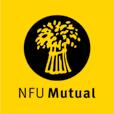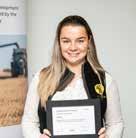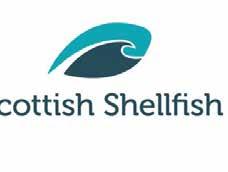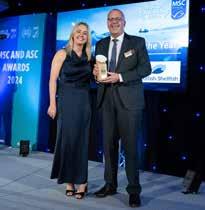
Winter ‘24/25



Winter ‘24/25

It’s back and, we’re predicting, better than ever! Our Conference for 2025 takes place on 16th Jan at Crieff Hydro Hotel and we have a packed programme, focusing on what we can do #workingtogether to strengthen farmers’ position in their supply chains.
We have a great line up of speakers, providing facts not fake news, and case study examples from some of our co-op members, and further afield, of successes achieved through the power of co-operation. We are really delighted to be joined by Ged Futter, who will share his views ‘from the other side’ having spent decades working in supermarket retail. Starting with where we are now, Allene Bruce, our Head of Supply Chain Development, who will share some findings of recent work SAOS has carried out on sector resilience as part of the Scotland Food & Drink Partnership.
Can we fix our supply chains? Our keynote speaker, Ged Futter, knows very well how the retail sector works, and he’s going to share some of this knowledge with us, as well as some of the key findings from his Oxford Farming Conference report ‘Is our UK food supply chain broken?’
We’ll hear our co-op members in the fruit, pig and dairy sectors: Angela Porchez, GM of Angus Growers and John Gray, MD of Angus Soft Fruits; Andy McGowan, MD of Scottish Pig Producers; Rory Christie of the Milk Suppliers Association; Max Sealy of Selkley Vale, and Ian Harvey of Davidstow Creamery Direct Ltd (and we’ll even squeeze in a little bit of cereals too with the help of Teresa Dougal, MD of Scottish Quality Crops).
It’s a packed programme and a lot to cover, but we know how valued the networking and the mulling over ideas is at our gatherings, so we’ve built in plenty of time for that too.
And for those joining us in the evening, we’ll have the presentation of the Next Generation Award before dinner, which is always such a positive nod to the safe hands of the future. (If you’ve not already nominated your co-op ‘rising stars’, see page 3 for the link to the form.)
After our Conference Dinner, we are delighted to have persuaded Bob Yuill to give his gavel a final flourish, to help raise some funds for RSABI with our ‘Rauction’ (a raffle and auction combination meaning that everyone has the chance of being a winner). Please do get in touch beforehand if you’d like to donate a prize.
Our thanks to NFU Mutual for their continued support, and we are delighted to welcome a new ‘evening’ sponsor, CAS Recruitment
Do join us on 16th Jan if you can - places are already filling up as we go to press. Please book up before Christmas to avoid disappointment! https://saosconference2025.eventbee.com
Supported by


We recently welcomed Vicky Warcup, of Farm Stock Scotland, and Murray Forsyth, of Aberdeen Grain, to our Board of Directors.
Vicky, Joint Business Director at Farm Stock Scotland, initially joined our Council in 2021 as our first Next Generation representative. Before that, she was a member of the SAOS-run Co-op Staff Forum through which she developed her knowledge of different co-ops and their governance.
Murray, who is Chairman of Aberdeen Grain, is a more recent addition to the SAOS Council, having been co-opted in 2022. He farms through the Smiddyburn Farms partnership, a mixed farming enterprise with approximately 900 acres of arable cropping (OSR, Wheat and Barley), and beef and lamb finishing.
Commenting on her appointment, Vicky said: “I am really pleased to join the SAOS Board. I’ve felt real benefit of working with, and learning from, the organisation in different ways, so it’s quite an honour to be asked to get involved in how it’s run. I see their work as
hugely beneficial, not only to member co-ops, but to the wider food and farming industry too, and I look forward to helping with that however I can.”
Murray commented: “I am delighted to join the SAOS Board. I have great respect for the can-do attitude of SAOS and the team, as I see them making a difference to the industry in many different ways through their own work and that of their subsidiary businesses. I’m looking forward to being a part of that.”


SAOS has two layers of governance; in addition to our Board members, the Council comprises sixteen members from different co-ops and sectors, as well as representatives of other industry organisations. Council members feed in to the organisation, helping to keep it abreast of current and upcoming challenges for all corners of the food and farming industry and supply chains. We also welcomed new faces on the Council, Rob Mitchell of Scottish Shellfish, Rod Sanderson from Tarff Valley, and Scott Calderwood of First Milk.
- THE ART OF COMMUNICATION - CREATING A BESPOKE COMMUNICATIONS
A three hour online workshop (delivered via Zoom) this course will help you create and execute a communication plan targeted at achieving a specified objective. Led by Hamish Walls - Project Manager, SAOS, and Katie McCubbinMarketing & Communications Co-ordinator, Tarff Valley, the objectives for the plan might include:
• Selling more product
• Attracting more members to an event e.g. small meeting, show or demonstration
• Successfully promoting a specified training course
• Recruiting new members
26th Feb 2025 in Dundee
This valued course enables participants to develop their understanding of the distinctive nature of successful co-op businesses with its focus on helping future co-op managers/section heads acquire and develop innovative approaches for leading and managing co-ops in an increasingly competitive environment.
In addition to providing training in the basics, such as the co-op principles and the co-op business model, the course will look at the manager role and identify the qualities demonstrated by those most effective. The course includes discussion of current issues and challenges, providing a unique forum for sharing ideas and experiences between participants from a range of co-ops. A key element, which is always a highlight, is hearing from two guest speakers - a current co-op manager and co-op chair who share their experiences with the group. This is a fantastic opportunity to hear first-hand from people at the sharp end of co-op business.
The course will help participants understand/explain:
• The co-op business model, what makes co-ops distinctive and the ‘co-op advantage’
• Co-op values and the seven principles of co-operation
• The value of the co-op life-cycle model and its five phases
• The importance of effective member engagement and communication
• How to measure/report a co-op’s member proposition
• What effective co-op governance looks like and why it is important
• How co-op businesses are changing and the sector’s future challenges.
More details on these, and all our upcoming training, can be found at https://saos.coop/events-and-training
Leadership development can be of great benefit at any career stage. Whether you’re a young professional or a seasoned director, the right programmes can provide new skills, build confidence, and offer fresh perspectives.
For Lucy Orr (right), a recent graduate, and Kirsty Spink (below right), an established Director, Growing Tomorrow’s Leaders (GTL) was a key part of their growth as leaders. We were really interested (and impressed!) that Lucy and Kirsty both undertook GTL while completing other respected industry training courses at the same time; Kirsty the Scottish Rural Leadership Programme (RLP); and Lucy, the Young Farmers (SAYFC)’s Cultivating Leaders programme. We asked them how the programmes complemented each other and if they’d recommend them.
Can you tell us about your background and what drew you to GTL?
Lucy: “I started my career 18 months ago as a Professional Trainee with NFU Mutual on a three-year graduate programme in Scotland. My role has been broad and varied so I’ve sampled a bit of everything from customer liaison to business renewal reviews. I was incredibly lucky to be nominated for GTL, as it gave me the chance to pause and consider my career path and the type of leader I wanted to become.”


Kirsty: “As the Managing and Finance Director at Grampian Growers, I was interested in leadership training to help me understand the rural challenges Scotland faces. The RLP allowed me to engage with political and external aspects of rural leadership, while GTL offered an introspective journey that focused on internal leadership skills like selfmanagement and strategic planning.”
How did GTL differ from the other programmes you completed?

Kirsty: “RLP was very hands-on, with a practical focus and a political dimension. I found myself visiting places like Westminster and Holyrood, learning about the complexities of rural life in Scotland and how we might overcome them, first hand. GTL, on the other hand, provided structured insights into leadership theories and models. This gave me tools to understand leadership from a theoretical perspective, helping me manage myself and my team better.”
Lucy:“Young Farmers’ Cultivating Leaders programme was more agriculture-focused, covering skills like succession planning and budgeting. GTL took a broader approach, focusing on leadership fundamentals and providing a framework for self-reflection. GTL helped me to identify my strengths and consider my career path strategically.” What benefits did you gain from combining GTL with these other programmes?
Kirsty: “RLP’s experiential learning taught me to approach leadership from a practical angle, seeing issues up close and understanding the impact on rural Scotland. GTL complemented this by equipping me with tools for selfmanagement and strategic implementation, providing a balance of practical and theoretical insights.”
Lucy: “Combining Cultivating Leaders with GTL gave me both industry-specific knowledge and a solid grounding in leadership. GTL encouraged me to step out of my comfort zone and explore my leadership style, which built my confidence. As a result, I applied for the Vice Chair role of the East Region for Scottish Young Farmers and secured a promotion within NFU Mutual—both of which felt achievable because of the clarity I gained in GTL and support of Cultivating Leaders.”
What would you say to others thinking about GTL, particularly those who may have completed or are considering other industry programmes?
Kirsty: “I would recommend GTL to anyone looking to build a solid foundation for self-reflection and leadership. GTL is all about leadership development and empowering others, without the political focus that RLP has. I think they worked really well together to give a fuller picture of what leadership can be.”
Lucy: “GTL is ideal for leaders at any stage. It adds a level of introspection and clarity that complements the hands-on aspects of other programmes. GTL has been instrumental in my development, providing direction and motivation as I continue to grow in my roles at NFU Mutual and Scottish Young Farmers.”
For Kirsty and Lucy, GTL was more than a training programme it was a catalyst for professional and personal growth. GTL offers the introspection, skills, and perspective to inspire a new chapter for leaders at any stage of their journey. Find out more/register interest for 2025 at: https://saos.coop/events-and-training/growing-tomorrows-leaders/
When everyone is working hard it’s important that we make an effort to recognise exceptional effort, and those with the kind of positive energy that embodies the co-op ethos. Tell us about your own (or any) co-op’s ‘rising stars’. Nominees must be a co-op member or staff member and age 40 or under. Nominations close 20th Dec and we’ll announce the winner at our conference in January. More info/nomination form at https://saos.coop/whats-new/news/2025-next-generation-award
David Michie shared his thoughts (and questions) on one possible step towards a greener future in a recent blog: “Fertiliser is costly for any agricultural business, and not just financially. In terms of carbon, fertiliser currently makes up a large percentage of food and drink’s overall carbon footprint.

SAOS’s C2Network has been working with farmers to explore the possibilities of producing their own fertiliser on farm, using renewable energy, with the aim of removing dependence on (highly volatile) international markets, and creating a more secure fertiliser supply and, in turn, greater food security. Green ammonia holds the possibility of a greener future for Scottish agriculture. A fossil fuelfree nitrogen fertiliser produced using green hydrogen (produced from renewable energy), it and other forms of green technology are attracting heavy investment by large companies. Some farm businesses in Scotland have large onshore wind turbines - we want to know if there are technologies available that would make green ammonia production financially feasible for farmers.
The C2N’s project brought together a University of Edinburgh Masters student with a group of farmers, modelling different technologies and turbine sizes, to assess feasibility at the scale of renewable energy produced by ‘real-life’ farm businesses. He interrogated scale, costs and capital requirements, using various hypothetical figures to develop a model for green ammonia production – not an easy process with so many components. The figures obtained gave an initial snapshot of feasibility, rather than a case for investment, and formed the basis of the student’s dissertation on Climate Change Finance and Investment.
He found that a 5,600-kW system (powered by three turbines) would cost between £15-20m and produce around 1,500 tonnes of green ammonia annually. To put this in perspective, this could fertilise about 8,000 ha of spring barley crops each year. The cost to produce the nitrogen, however, would be over 50% higher than the current cost of ammonium nitrate - a lot more, but too much?

Reducing the carbon footprint of arable farming is difficult. Practices that reduce emissions on an area basis, for the year the crop is grown, can incur costs elsewhere - reducing yield, and increasing emissions elsewhere in the rotation that can chip away at any positive progress. Unfortunately there is no silver bullet for reducing emissions - farmers must make do with multiple marginal gains to make progress.
End markets have ambitious net zero targets but there is a cost to these that must be met. Governments too have ambitious climate targets and Government support for businesses, to help with capital expenditure and higher operating costs, could support a just transition to net zero. These technologies are relatively new. There may well be further advances to reduce production costs, so these initial, seemingly high, costs are perhaps not too high, and can be built into market prices or policy support in the future? We at SAOS would love to support the formation of an energy co-op, producing green ammonia for its members and helping Scottish agriculture move towards net zero while securing fertiliser production in Scotland. But it would have to be financially viable.
At SAOS we are driven to find solutions rather than dwelling on difficult problems. SAOS’s C2N project is all about driving positive change in agriculture through collaboration. We hope that by bringing farmers and academics together, and sharing the evidence found, we can help move the Scottish arable sector further along the hard path of emissions reductions.”
Thanks to everyone who responded to our recent member survey.
We had a strong response, from 50 individuals representing 33 co-ops which is 63% of our membership and, while we were pleased with our overall 4.2 ‘stars’ out of 5 rating, we are in no doubt that we can do better. Sadly, it is impossible for us to be everything that our members would like, and there are some things that it is difficult to remedy by ourselves (especially with funding that has, in real terms, reduced dramatically since 20 years ago!) But we remain committed, and focused on helping our members however we can.


One of the ‘do more of’ requests was for help with member engagement, so straight off the bat, opposite, we have a reminder from Jim Booth about some of the ways co-ops can do that.
A co-op’s success depends heavily on how committed and engaged its members are. As the co-op’s greatest asset, members should be the focus of effective engagement strategies, and a top priority for management and the board. However, in practice, member engagement often takes a back seat to other priorities.
Building strong relationships, driving growth, and upholding co-operative principles requires consistent communication, which demands time and resources. While not easy, effective communication and engagement are essential to ensuring long-term success. By investing in this, co-ops can strengthen member relationships, foster sustainable growth, and stay true to their core principles.
Although co-ops are designed to be democratic, this only works when members are actively encouraged to participate in managing the business. Simply holding an AGM is not enough to ensure meaningful involvement. By understanding and enhancing member engagement, co-ops can strengthen their relationships with members, drive sustainable growth, and uphold the co-op principles that underpin their operations.
Best practice in Co-op Member Engagement
The tips below are intended to guide co-op leaders in cultivating a robust and engaged membership base. These practices will help ensure that members feel valued, informed, and involved in their co-op’s decision-making processes.
Create a clear Member Value Proposition: Every co-op should have a strong headline that highlights the benefits of membership. Regularly measure and report how your co-op provides value to boost member loyalty, commitment, and engagement.

Develop a Communications Plan: A well-structured communication plan is essential for keeping members informed. This should outline an annual strategy, using newsletters, emails, social media, forums, and surveys. Tailor communication efforts to fit member demographics and interests to ensure relevance and higher engagement.
Hold regular Member Meetings: Regular meetings, though sometimes seen as an expense, are critical for fostering member engagement. Smaller, local meetings, such as farm kitchen gatherings, often work best for meaningful interaction.
Host Social Events: Organise community-building events like site visits, BBQs, award ceremonies, and networking sessions. These social events play a more vital role than many realise in strengthening the bonds among members. Make it fun!
Provide Member Development: Offer ongoing workshops, seminars, and training to help members understand coop principles, governance and support to improve their farm performance. Continuous education is key to helping empower and engage your members.
Please speak to any of the Co-op Team if you’d like help with your member engagement.
With the help of Scottish Government KTIF funding, SAOS is teaming up with the Scottish Potato Co-operative (SPC) to investigate how we can better manage one of our most precious commodities, water.
Storing, abstracting, and irrigating are all common practices, and all these have a cost. We want to think about management of water in a future, drier climate. And how beneficial, and costly, changes to water management could be. Although it hasn’t been a problem this year, water scarcity is challenging; reducing overall potato yield, and marketable yield for high value, early salad, and higher dry matter, potato varieties.
We know our climate is changing. We’re seeing more extreme weather events affecting farming operations more often. We’re projected to have hotter, drier summers and warmer, wetter winters. Climate trends show that Scotland’s East coast has had more increasingly drier summers than the rest of the country. Globally, we are now in a La Niña weather pattern, which will give us a period of wetter and milder weather in Scotland. When this flips back to an El Niño weather pattern*, we expect water scarcity to become a significant challenge and we want SPC’s members to be ready for this challenge.
This project will interrogate the practicalities and feasibility
of different water resource management practices and their costs and benefits: whether that be storage, technologies, or different practices. We’ll look at what SPC members are currently doing, in terms of water storage and irrigation and look further afield, for countries and businesses doing things a bit differently.
Climate adaptation will be expensive. It will require policy support. NFU Scotland is a partners in this project, and the information gathered can be used in their lobbying activities.
David Michie, who is leading on the project told us: “When lifting is finished, I will get out onto farms to interview SPC members to get a better understanding of what they’re doing. Getting a good handle on the practicalities and costs of what they do will help put potential innovations from elsewhere into a Scottish potato growing context. These interviews might also identify different practices to investigate further.
“Ultimately, we want to find out how to manage water as the climate changes. To identify options that businesses can put in place. As growing conditions change over time, and water becomes a scarce and valuable resource, we want to ensure our co-op members are best placed to use that resource profitably and sustainably.”
United Oilseeds unveiled its financial performance at a corporate and press event held at Newbury Racecourse, in November. For the financial year 2023-24 United Oilseeds, made a profit of £1,814,459, marking the third-highest in its history. Despite a challenging market, the co-op’s annual turnover remained steady at £172,208,871, with net worth increasing by 8.5% to reach £17.5 million (unaudited).
During the year United Oilseeds distributed £616,000 in profit-sharing to its trading members - the largest payout in its 58-year history. Managing Director, James Warner indicated that a further profit share payment for the current year will be announced in the coming months.
James Warner also highlighted the co-op’s resilience: “Achieving our third-highest profit is a testament to our strategic focus. Despite pressures within the oilseeds sector, we maintained stable turnover and strengthened our financial position.”
industry challenges. However, overall commodity tonnage traded decreased by 9%, aligning with sectorwide reductions, totaling 377,770 tonnes compared to 415,964 tonnes the previous year.
In addition to hearing from James Warner discussing United Oilseeds’ strong financial performance and industry trends, guests attending the event heard from guest speakers, Dr. Julian Little discussing the OSR Reboot campaign, and UO farmer member and Great British Bake Off 2024 contenstant, Mike Wilkins.

United Oilseeds has successfully diversified beyond oilseed rape (OSR), with increased revenue from nonOSR commodities providing critical resilience amidst
As we reported previously, United Oilseeds is spearheading the OSR Reboot campaign to revitalise UK OSR production. Collaborative industry groups are already making progress on policy reforms and innovations in breeding technology. “The response to the OSR Reboot has been outstanding,” said James Warner. “We are optimistic about building a sustainable future for UK OSR. With the forecasted OSR planting area at a 40-year low of 215,000 ha, equating to 663,850 tonnes, the sector faces significant challenges. Yet, United Oilseeds remains committed to driving growth and ensuring stability for UK farmers.”
And the Award Goes to... Scottish Shellfish
Congratulations to Scottish Shellfish who were recently announced as the UK Retail Supplier of the Year at the Marine Stewardship Council’s Awards 2024.
Pictured at the ceremony is Derek Sharp, SSMG’s Commercial Manager, who received the award from Loren Hiller MSC’s Commercial Manager . Derek commented: “The MSC awards celebrate achievements within sustainable seafood and responsible sourcing. Nominations for this award come from UK supermarket retailers, so given the energy that has gone into promoting the sustainable messages around mussels and oysters, it is fantastic to know this has been well received and our supply chain and end products are viewed in such high regard by our core customers. “


At East of Scotland Farmers’ AGM, Chairman Pete Grewar reported on another strong year for the co-op. Although lower commodity values meant a drop in turnover from £37.036m to £30.409m, all departments (grain sales, grain facilities, fertiliser and seed, agronomy and ag-chem, country store and transport) contributed strongly to a very healthy bottom line.
At 88,000T, harvest 2023 was the fourth biggest annual tonnage of grain handled. Sales of fertiliser, seed and sprays were also strong, but none exceeded its previous best performance. Collectively though, they produced a profit of £449,789 for the twelve months ending 31st May 2024, a new record for the business, strengthening the balance sheet from £6,240,263 to £6,617,669.
Pete also reported on improvements made to the current buildings and equipment whilst still continuing to build reserves and position themselves to add another new dryer and store; hopefully in 2-3 years’ time.
He noted the challenges inevitable in every farming year, with volatility in grain markets a perennial feature, but noted that EoSF’s pools had once again delivered solid returns to members whilst saving on the time required to analyse complex market information and sparing the worry of trying to make sales at the right time.
Of course the weather has been less than ideal: The wet autumn and winter resulted in compromised crop rotations, and the cold spring has led to a later harvest than usual but, as always, the co-op had been able “to bend and flex” to accommodate the needs of its members.

He reported that the co-op’s two newest Directors and Company Accountant have all settled in well and are making strong contributions to the Society’s governance and financial management respectively. Before his closing thanks, he noted that longevity of service has been a feature of EoSF staff and boards over the years but that, for only the second time in almost forty years, the co-op would be recruiting a new General Manager to take over the reins from Robin Barron next summer.
The seed potato export season is well underway with potato farms busy grading, packing and dispatching loads to important export markets across the globe. The Scottish Agri Export Hub has been busy too, co-ordinating and leading an inspection of the Scottish seed potato sector by Jordanian Ministry of Agriculture officials. The inspection took place in late November and included a visit to SASA headquarters near Edinburgh, to agree tolerance levels and see first-hand the protocols and testing measures used by the sector here to ensure seed potatoes exported from Scotland leave with their high health, high quality status intact. The trip also included a series of industry visits including GenTech Propagation; a mini-tuber growing facility in Dundee, followed by a visit to Cygnet PEP, a seed potato exporter near Milnathort, where the Jordanian officials saw seed potatoes being graded, packed and loaded onto refrigerated shipping containers.

Pictured left to right: Yousef Marto, The Marto Group; Adnan Al-Oksoh, Abeer Tayyem, Sameh Alkharabsheh, (all Jordanian Ministry of Agriculture); Sandy McGowan, Cygnet PEP; Patrick Hughes, SAOS/Agri Export Hub
The Agri Export Hub’s Patrick Hughes commented: “Jordan is a relatively new export market and this official inspection will allow the sector to maximise the potential export opportunity there. It is estimated that the seed potato export potential for Jordan could reach 10,000 tonnes in time, making it a hugely important export destination for the sector, and another destination to add to our impressive portfolio.”
Continuing our work with the key players across Scotland’s agri-food supply chains, we’ve now completed the Oct ‘24 update of our sector supply chain maps and wanted to share how we go about this work.
• Mapping Supply Chains: We analyse supply chains sectorby-sector to pinpoint critical challenges and opportunities for boosting long-term resilience, sustainability, and profitability. This includes creating full maps and also ‘Key Facts and Figures’ summaries to highlight issues identified.
• Industry Consultation: We engage with industry experts to ensure our supply chain maps accurately represent the real-world, real time dynamic.
• Identify Ongoing Work: We assess existing initiatives and collaborations aimed at strengthening sector resilience and sustainability.
• Cross-Sector Insights: We compile and share valuable lessons across sectors to promote best practice.
• Action Planning: We collaborate with industry stakeholders to develop practical strategies.
Sustainability is at the heart of SAOS’s work and our aim is to support sectors in developing supply chains that, not only deliver economic value, but also safeguard environmental and social resources for future generations. We have expanded the sustainability section this time to provide a more comprehensive view of each supply chain’s impact and activity.
Building on the original assessment of the three pillars of sustainable development - environmental, economic, and social - the updated versions include information on the carbon footprint and emissions of each supply chain.
This expanded section highlights:
• Carbon Footprint Analysis: Detailed breakdowns of CO2e contributions across supply chains.
• Emissions Categories: Emissions are assessed as either Scope 1, 2, or 3 and show the contribution of direct, indirect, and value chain-related activities.
• Key Impact Factors: Insights into elements driving the carbon footprint at every stage of the supply chain.
• Current Activities: A summary of ongoing efforts to reduce emissions and promote sustainability.
• Opportunities for Improvement: Future pathways for supply chains to align with Scotland’s commitment to continuous improvement towards sustainability goals.
The insights from this work are crucial for updating the Scotland Food & Drink Partnership’s Ambition 2030 strategy and providing expert input to the Scottish Government’s Food Security and Supply Taskforce. SAOS has developed strong relationships across various sectors and supply chains, building expertise in finding collaborative solutions to complex supply chain challenges. You can view the list of maps available and examples at: https://bit.ly/49Y1xyM
If you’d like copies or to discuss how we can support your supply chain, contact: Patricia.Rojas@saos.coop
In their ‘Rising to the Top’ strategy, the Scottish Dairy Growth Board set a target of £150m for exporting fresh pasteurised milk annually by 2030. The first stage, supplying fresh, pasteurised Scottish milk to Morocco, has made real progress in the last year with SAOS actively involved with its supply chain development expertise and key links to its co-op members. The impact of climate change means many countries already affected by water scarcity are exploring the possibility of importing fresh milk. The Dairy Growth Board has identified further potential markets in North Africa, the Middle East, and southern Europe. Investment is needed though for a suitable pasteurisation plant in Scotland and, subsequently, in a milk concentration plant on the same site to allow the sector to be more competitively priced and achieve longer shelf life. SAOS’s Alan Stevenson, Dairy Growth Board member, added: “We are currently supporting the pilot through our SF&D Partnership activity, helping address the technical challenges and build scale thereafter. It’s a great opportunity to explore new markets that, not only could offer a positive return, but may also help lift farm gate prices overall in time.”
Food Integrity Assurance (FIA), SAOS’s quality assurance ‘sister’, has been appointed by Scottish Quality Wild Venison to lead the assessment and certification of the Scottish Quality Wild Venison Scheme from January 1, 2025.
Under this partnership, FIA will oversee the evaluation of stalking practices and carcass storage for scheme members, ensuring they meet the rigorous standards required for certification.
John Fortieth, Chair of SQWV, expressed confidence in the partnership, noting FIA’s strong track record in certifying Scottish products: “With FIA’s expertise, SQWV is well-positioned to grow and meet rising demands in both production and emerging markets. We’re eager to work closely with our members, confident that this collaboration will expand the scheme’s impact for both members and the wider industry.”
Scotland has long led the way in quality assurance for primary food production, with successful ventures in both local and international markets. Building on this foundation, the SQWV Scheme now aims to support its 170+ members and broaden its reach across the supply chain. The scheme’s core objectives include bolstering Scotland’s reputation for food safety, traceability, and sustainability in wild venison production.
Stephen Sanderson, General Manager of FIA, also shared his excitement about the collaboration.“Since our inception in 2021, FIA’s mission has been to advance sustainable, climate-conscious food production in Scotland. We look forward to working alongside SQWV and the industry to strengthen the integrity of the Scottish Quality Wild Venison brand. By adopting new technologies and integrating cross-scheme assessments, we hope to streamline processes and increase value for producers, both domestically and abroad.”

This partnership signals a milestone for the Scottish wild venison industry, reinforcing its commitment to food safety, quality, sustainability, and consumer confidence.
Scottish Provenance Means the Most important Scottish provenance is to this market.
At the recent Scotland Food & Drink conference, findings from new research commissioned by The Knowledge Bank into Out Of Home Dining (OOH) showed just how
In a study of 1000 OOH diners (from Scotland, London, regional hubs like Manchester, and tourists to Scotland) the research showed that tourists were the group most motivated by provenance in their purchases (81%) rising to 87% when asked whether they would be motivated to purchase products with Scottish provenance.

Beyond the broader idea of provenance, the specific areas which resonated most with OOH diners were:
• Keeping waste to a minimum (69%)
• Eating fruit, vegetables or game that are in season (65%)
• Supporting businesses or producers from a specific area (59%)
Using sustainable practices of production and ingredients suited to the climate and landscape they’re produced in were also important to this group.
All these are illustrated in the example of Old Leckie Farm, run by SAOS’s own Fergus Younger and his wife Alison, winners of the Scotland Food & Drink Primary Producer of the Year 2024 (pictured above,centre). Old Leckie is a 300 acre family farm producing award-winning free range eggs, grass fed meat and homegrown veg, using a variety of sustainable practices and using local butchers. Much of their produce is sold via their online shop and box scheme direct to consumers, and seasonality is a key feature – if it’s not in season, it’s not available, a fact which is clearly understood and appreciated by their customers. Congratulations to Old Leckie!

The Scotland Food & Drink Provenance and Foodservice Report 2024 and accompanying webinar is available through the Knowledge Bank here https://theknowledgebank.scot/
Merry Christmas and a Happy New Year to all of you from us to all at SAOS!
As always, if you’ve any suggestions for future SAOS Updates, or should you no longer wish to receive it, please contact: jennifer.thompson@saos.coop
